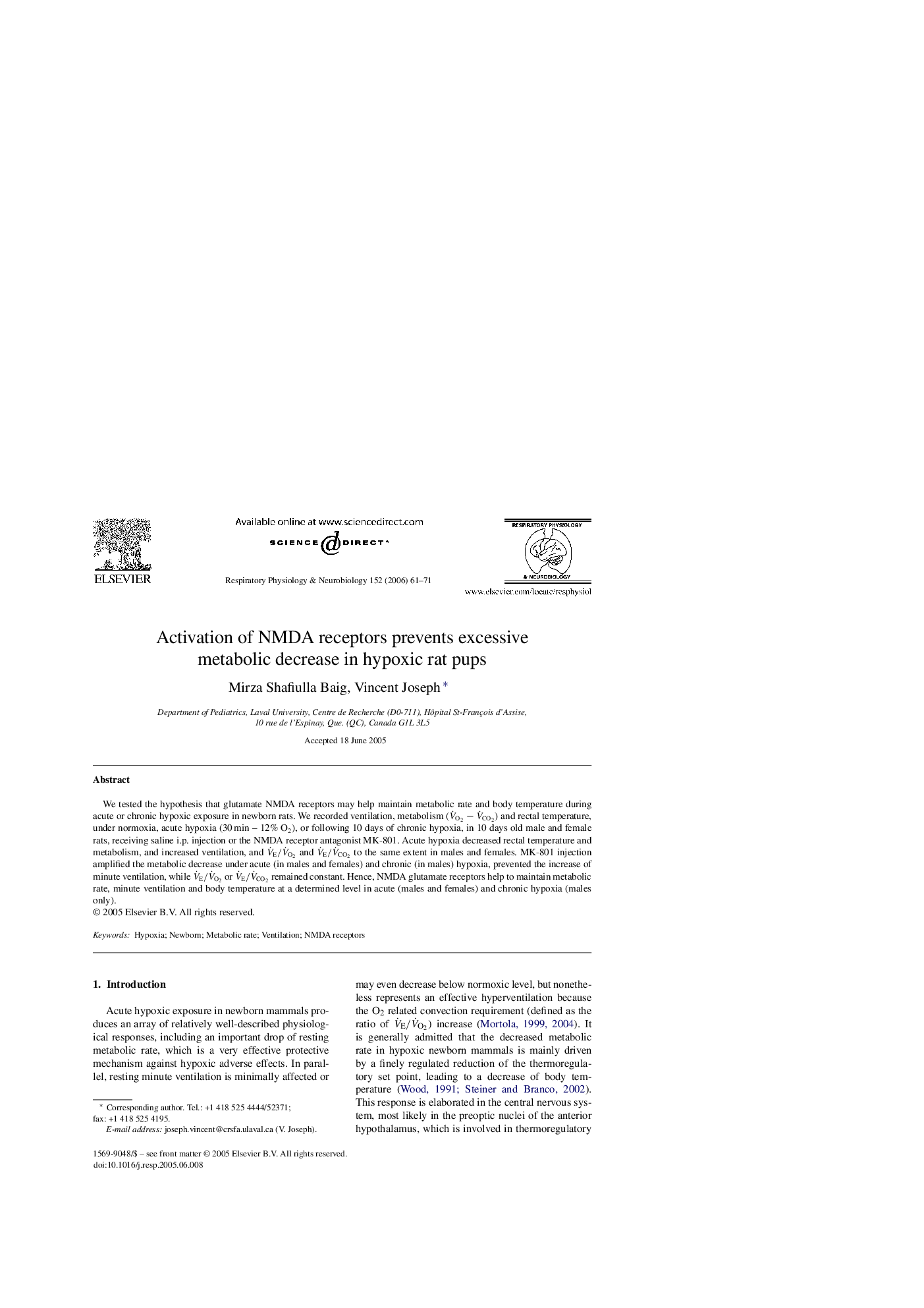| Article ID | Journal | Published Year | Pages | File Type |
|---|---|---|---|---|
| 2848667 | Respiratory Physiology & Neurobiology | 2006 | 11 Pages |
We tested the hypothesis that glutamate NMDA receptors may help maintain metabolic rate and body temperature during acute or chronic hypoxic exposure in newborn rats. We recorded ventilation, metabolism (V˙O2−V˙CO2) and rectal temperature, under normoxia, acute hypoxia (30 min – 12% O2), or following 10 days of chronic hypoxia, in 10 days old male and female rats, receiving saline i.p. injection or the NMDA receptor antagonist MK-801. Acute hypoxia decreased rectal temperature and metabolism, and increased ventilation, and V˙E/V˙O2 and V˙E/V˙CO2 to the same extent in males and females. MK-801 injection amplified the metabolic decrease under acute (in males and females) and chronic (in males) hypoxia, prevented the increase of minute ventilation, while V˙E/V˙O2 or V˙E/V˙CO2 remained constant. Hence, NMDA glutamate receptors help to maintain metabolic rate, minute ventilation and body temperature at a determined level in acute (males and females) and chronic hypoxia (males only).
